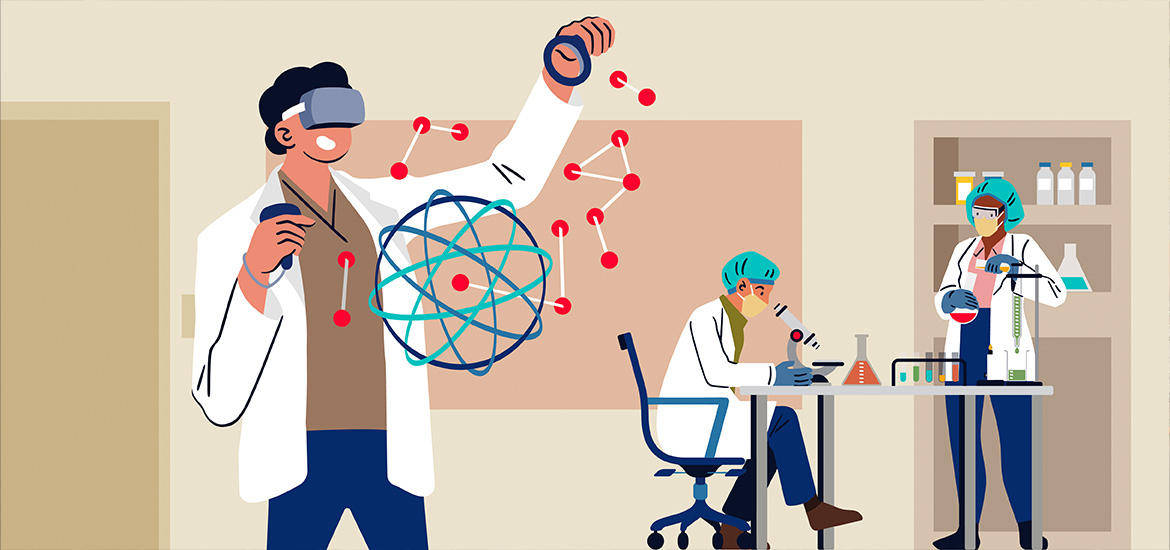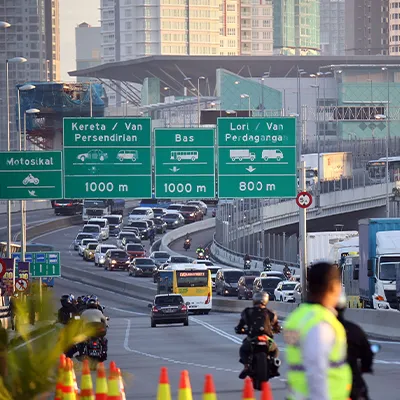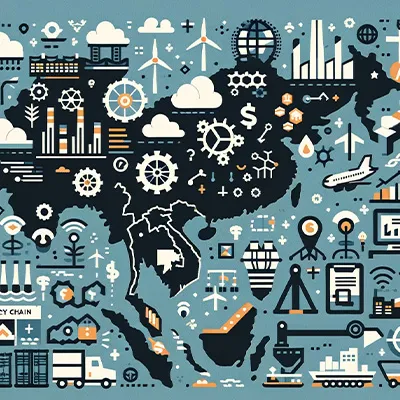Singapore’s biopharmaceutical exports have more than tripled over the past 20 years to S$19 billion (US$14.27 billion) in 2022, demonstrating the sector’s robust growth.
Singapore has more than 80 pharmaceutical and medical device manufacturing plants with a total of 24,000 employees. Its advanced technological infrastructure, highly-skilled talent pool, global interconnectedness and focus on innovation have attracted many of the world’s top pharmaceutical companies to set up their production bases there.
About 14 companies, with some 7,000 employees, have set up in Tuas Biomedical Park, which has purpose-built spaces and laboratories. The biomedical park complements Biopolis at one-north, and is home to companies such as GSK, Pfizer, Sanofi, MSD, Novartis, Roche and AbbVie.
Singapore’s thriving biopharma ecosystem comprises top manufacturers of small molecules, biologics, drugs, vaccines and other products, said EDB’s Senior Vice President and Head of Healthcare Goh Wan Yee.
“We will continue to work closely with institutions from various fields to enhance our research and manufacturing capabilities for diagnostics, therapeutics and vaccines. We will also continue to cultivate talent through tertiary and continuing education, as well as on-the-job training. This will strengthen Singapore’s healthcare ecosystem and its position as Asia’s leading biopharmaceutical hub,” added Ms Goh.
Next-gen manufacturing in Singapore for US biotech pioneer Amgen
Amgen, an American biotech innovator has also built two factories in Tuas Biomedical Park since 2014 and invested more than S$535 million (US$400 million) in its Singapore production base. The factories specialise in producing active pharmaceutical ingredients, which are used in the development and manufacturing of synthetic pharmaceutical ingredients, as well as clinical and commercial biomedicine in fields such as neuroscience, oncology, cardiovascular health and bone health.
“Besides robust infrastructure and a highly-skilled talent pool, Singapore is very stable politically and economically. The business environment is highly transparent, and the country emphasises the protection of intellectual property, which encourages innovation,” said Amgen Singapore’s Vice President of Manufacturing Wallace Torres. In the past nine years, Amgen’s local staff headcount has grown from 70 to more than 350.
When Amgen set up its first factory in Singapore, it set advanced manufacturing as its goal. Its “next-generation biomanufacturing facility” adopts highly efficient and innovative manufacturing processes to reduce construction and operating costs. Compared to a traditional factory with the same production capacity, Amgen’s plant reduced its water and electricity consumption by 58 per cent and 78 per cent respectively and lowered carbon emissions by 76 per cent.
“The facility has a modular design, allowing for flexible, faster and more efficient manufacturing. During the 2020 COVID-19 outbreak, for example, Amgen collaborated with local start-up Hummingbird Bioscience to swiftly produce monoclonal antibodies for clinical trials,” said Mr Torres.
The factory is furthering its digitisation efforts with semi-autonomous robots. Augmented reality (AR) and virtual reality (VR) wearable devices also help improve productivity.
The Rhode Island plant was modelled after Amgen’s first next-generation biomanufacturing plant opened in Singapore in 2014.
Besides US biopharma companies, Chinese companies have also set up facilities in Singapore. WuXi Biologics, a Chinese company that produces raw materials for the AstraZeneca COVID-19 vaccine, announced in August last year that it would invest US$1.4 billion over the next 10 years to set up a research and production facility in Singapore. This will create an estimated 1,500 jobs. The company plans to build a contract development and manufacturing centre to increase its biopharmaceutical production capacity by 120,000 litres by 2026.
In addition, GenScript Biotech Corporation, which provides life-science research tools and services, launched a 2,700 sq m protein production base in Singapore last February. The facility highly automates the process of protein and gene preparation. It is designed to manufacture high-quality products quickly for the development of new vaccines and therapeutics – promoting life sciences innovation in the Asia-Pacific. This marks a major expansion of GenScript’s platform of advanced protein and gene platforms.
Swiss eyecare device company Alcon taps on “SG+”
In 2005, eyecare device company Alcon settled in Tuas Biomedical Park. It manufactures contact lenses using high-tech machines in its Singapore factory, and today, annual production exceeds 1 billion contact lens pieces.
Alcon, headquartered in Geneva, Switzerland, was founded 76 years ago. It established itself in the global contact lens market after it was acquired by Novartis and merged with CIBA VISION. Alcon was spun off from Novartis in 2019 and became an independent listed company.
The company now has 18 production bases around the world. Three are in ASEAN countries, with the first built in 1996 in Indonesia’s Batamindo Industrial Park, followed by others in Singapore and Johor, Malaysia.
“Alcon regards its Singapore production base as an important anchor point in the region, and has invested more than US$600 million in it,” said Alcon Singapore’s General Manager Wong Chiak Wu.
The Singapore factory has fewer than 600 employees – about 40 per cent less than the headcount in Malaysia and Indonesia - but boasts high productivity due to its fully-automated production lines.
Alcon’s approach is an example of the “SG+” twinning model at work, where companies set up headquarters in Singapore to benefit from its strengths in R&D and innovation, while undertaking cost-efficient manufacturing in neighbouring countries. By leveraging the complementary advantages of countries in Southeast Asia, Alcon has been able to strengthen its supply chain resilience.
Businesses can also tap on the Southeast Asia Manufacturing Alliance (SMA), a joint partnership between EDB, Enterprise Singapore, and strategic partners in the private sector. The alliance will help companies planning to use the “Singapore+” (SG+) strategy to expand to Southeast Asia. There are now more than 10 industrial parks in Indonesia, Malaysia and Vietnam in the alliance. Among them are Nusajaya Tech Park in Malaysia, Batamindo Industrial Park in Indonesia, and Vietnam-Singapore Industrial Park in Vietnam.
This article was adapted from a content series produced by Singapore Chinese-language media organisation Lianhe Zaobao, that spotlights how businesses can tap on opportunities across Southeast Asia and serve global markets, from Singapore.
Read the other pieces in the series on supply chain diversification, the production bases in Indonesia and Malaysia, and how South Korea’s Paris Baguette is expanding in Southeast Asia.







